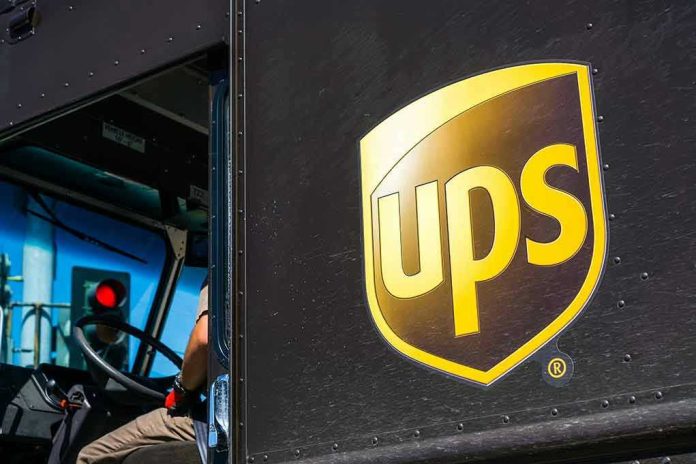
UPS customers are being incorrectly billed for high tariffs, such as the 200% U.S. duty on Russian aluminum, even when their shipments do not contain the relevant materials or originate from Russia.The issue is widespread, with reports surfacing on social media and business forums, highlighting significant customer frustration and financial losses.
Story Highlights
- UPS customers are being incorrectly billed for high tariffs, such as the 200% U.S. duty on Russian aluminum, even when their shipments do not contain the relevant materials or originate from Russia.
- The issue is widespread, with reports surfacing on social media and business forums, highlighting significant customer frustration and financial losses.
- Recent changes in U.S. customs policy, including the reversal of the de minimis rule, have increased the complexity of customs declarations and may be contributing to UPS’s misapplication of tariffs.
- Customers face significant challenges in getting answers or resolving these issues with UPS, leading to delays and reputational damage for the company.
Regulatory Background
In 2023, the U.S. imposed a 200% tariff on Russian aluminum and derivatives as part of broader sanctions. This move was part of a geopolitical response to tensions with Russia. More recently, in August 2025, the de minimis rule was revised, requiring more shipments to undergo formal customs clearance. This change has increased the volume and complexity of customs declarations, potentially exacerbating the misapplication of tariffs by UPS.
Impact on Customers
The financial implications for customers are severe. Many are facing tariff bills that exceed the value of the goods shipped, leading to financial strain and disrupted supply chains. Small and medium-sized businesses, which rely heavily on timely imports, are particularly affected. The lack of transparency and support from UPS has led to widespread dissatisfaction among customers, who are often left with little choice but to pay the charges or risk further delays.
Systemic Failures
Industry experts attribute the errors to automated systems struggling with complex tariff codes and recent regulatory changes. UPS’s role as an intermediary between customers and customs authorities means it has significant control over how tariffs are assessed and communicated. However, the company’s customer service has been criticized for being unresponsive, leaving customers with limited recourse.
Expert Perspectives
Legal and trade experts emphasize the need for clearer federal guidance and more robust auditing of carrier practices to prevent such errors. Some see the issue as a technical failure in UPS’s systems, while others argue it reflects deeper problems in the logistics industry’s ability to adapt to evolving trade rules.
Current Developments
Reports of incorrect tariffs continue to surface, with some bills exceeding the value of the goods shipped. UPS has acknowledged some complaints but has not provided a comprehensive explanation or solution, leading to ongoing financial and operational disruptions for many customers.
Sources:
Business Insider: UPS Customers Say They’re Being Charged the Wrong Tariff Rates
Business Insider: Delays and Tariffs Made Me Switch from UPS
WebProNews: UPS Erroneously Applies 200% Russian Tariff to Non-Russian Aluminum Imports
Los Angeles Times: New Import Tariff Rule Delivers Shock to Consumers







